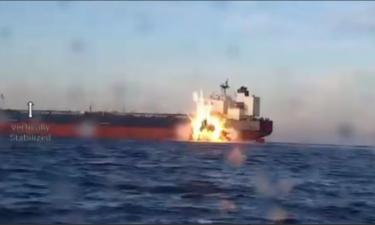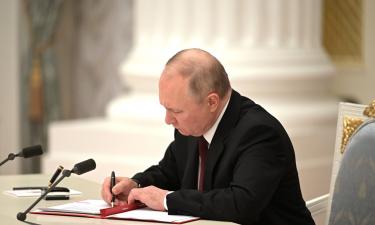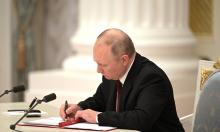Middle East peace talks in Qatar futile in their nature
Discussions on a ceasefire in the Gaza Strip continue at various levels In the capital of Qatar, Doha. US Secretary of State Antony Blinken met with his Qatari counterpart Mohammed bin Abdulaziz al-Khulaifi on August 20. Blinken arrived in Doha from Egypt as part of his tour of the region, which also included a visit to Israel. This visit took place following indirect talks between Israel and Hamas, which took place in Doha on August 15 and 16.
Russian-Israeli historian and publicist and historian Artem Kirpichenok, shared his analysis of the situation in the Middle East in an interview with Pravda.Ru.
The negotiations on a ceasefire in the Gaza Strip are taking place in Qatar under the auspices of the United States with the mediation of Egypt. What goals are they pursuing?
I think that the goal of the negotiations is to demonstrate a useful activity. Unfortunately, there is a suspicion that the result will be approximately the same as the results of all previous conferences and negotiations that have taken place since October last year. None of those conferences have been able to stop the hostilities. There is no reason to believe that the talks that are currently taking place in Doha could reach a breakthrough on this issue. We have prerequisites that indicate that they will not have a positive outcome.
What are these prerequisites?
First of all, it goes about the assassination of Hamas leader Ismail Haniyeh several weeks ago. When one party of the talks kills the leader of the other party participating in the same talks, this in no way contributes to progress.
Representatives of intelligence services took part in indirect negotiations: the head of Israeli intelligence, representatives of Egyptian intelligence, and the Qatari intelligence services. Yet, we did not see people making political decisions there. It is not executors, but those authorized to lead the political process who should be involved in the decision-making process.
Based on your analysis, it appears that the parties are unlikely to agree on the start of the peace process and the escalation will continue?
We do not know whether there will be an escalation. Most likely, the conflict will continue in its current sluggish phase. Residents of the Gaza Strip do not see it sluggish, of course.
According to most recent estimates, about 40,000 people have already died there, including at least 15,000 children. There is a humanitarian catastrophe in Gaza.
In general, Israel is not conducting active offensive operations in Gaza. There are shootouts in the north of Israel along the Lebanese border. No one is talking about an invasion of Lebanon anymore. Iran's response to Israel is a myth too.
What stops Israel and Hamas from reaching an agreement
What is the main contradiction between Hamas and Israel?
Firstly, an attempt was made to exclude Hamas from the negotiation process even before October 7 as a result of so-called Abraham Accords — the agreements between Israel and the Gulf countries. Hamas' attack was caused by its desire to show that it was an important player in the political field.
Secondly, Hamas is politically oriented towards Iran. It is part of the so-called axis of resistance — a bloc of pro-Iranian countries and political groups that oppose the countries allied with the United States of America. They are Israel, Jordan, Egypt and Saudi Arabia.
There are serious contradictions within the framework of the Palestinian-Israeli conflict. Israel occupies Palestinian lands, keeps the Gaza Strip under blockade, and there are a huge number of political prisoners in Israel. There is a conflict at the local level between Israel and Hamas.
Important players in the Palestinian-Israeli conflict
Russia
Not too long ago, the head of the Palestinian Authority Mahmoud Abbas visited Moscow where he met with Russian President Vladimir Putin. How might this affect the Middle East process?
I think that Russia will intervene more actively in the Middle East process in the near future. Today, Russia's attention is focused on what is happening in Ukraine and the Kursk region.
However, from the very beginning of the conflict, Russia positioned itself as an independent player: it offered its mediation, received a delegation from Hamas, and thus showed that it can serve as a bridge in relations between the Israelis and the Palestinians. But so far, neither the Israeli nor the American side is going to invite Russia to the negotiating table.
China
There is another very important player that Western countries ignore in the format of meetings in Doha — China. China distanced itself from the Middle East conflict, but it has recently emerged as an important participant in the negotiation process.
China contributed to the agreements between Saudi Arabia and Iran that froze the conflict.
It was under the auspices of China that the meeting of the leaders of the Palestinian political movements took place.
China's absence from the last meeting clearly demonstrates that the possibilities of this event are very limited. The number of players involved is insignificant, and one may expect some agreements on local issues, but not breakthrough decisions.
In general, I do not think important political decisions can be possible in the Middle East before the elections in the United States. Everyone wants to know who takes office as US President next.
Will the US stop Israel?
US Democrats allegedly want to achieve at least a temporary truce before the elections. Israel already talks about the transfer of temporarily occupied lands to Israel. Do you think the US will be able to stop Netanyahu in his militaristic plans?
The United States can stop Israel at any time. Without equipment and ammunition that come from the United States, the Israeli army cannot conduct military operations.
As soon as planes with supplies stop landing at Ben Gurion Airport, the fighting will end in a few days, this is an obvious fact. But the American leadership does not have the political will for such a decision.
There are two trends in American political circles.
- A part of the Democrats is interested in a quick resolution of the conflict. I think there are such people among the Republicans too.
- On the other hand, there is a fairly influential pro-Israel lobby that believes that Israel should be given carte blanche to achieve its political goals in full. This circular firing squad leads to the sad situation that we see today.
The American leadership currently has no strategy, no roadmap, no plan on how to overcome the crisis. The American political leadership is also waiting for the election. In the meantime, the fighting continues.
How will Iran act?
How do you see the further development of the situation? Will the conflict expand to Lebanon? Will Iran respond, or are these just threats?
Events will develop unpredictably. In my opinion, the situation will remain more or less the same at least until the elections in the USA unless extraordinary events occur. Clearly, Iran does not want war with Israel and its allies.
At the same time, Iran may act through its proxies. It will be supporting Hezbollah that will continue to put pressure on northern Israel. It will ensure that the conflict does not go beyond certain limits. Incidents of shelling, attacks will continue to happen, but a full-scale war is not going to start. Yet, an insane, extraordinary event may happen any time and all forecasts will collapse in an instant.
Details
The Israeli–Palestinian conflict is an ongoing military and political conflict about land and self-determination within the territory of the former Mandatory Palestine. Key aspects of the conflict include the Israeli occupation of the West Bank and Gaza Strip, the status of Jerusalem, Israeli settlements, borders, security, water rights, the permit regime, Palestinian freedom of movement, and the Palestinian right of return.
Ismail Haniyeh was a Palestinian politician who served as chairman of the Hamas Political Bureau from May 2017 until his assassination in July 2024. He also served as prime minister of the Palestinian National Authority from March 2006 until June 2014 and Hamas leader in the Gaza Strip from June 2007 until February 2017, where he was succeeded by Yahya Sinwar. Haniyeh was born in the al-Shati refugee camp in the then Egyptian-controlled Gaza Strip in 1962 or 1963, to parents who were expelled or fled from Al-Jura (now part of Ashkelon) during the 1948 Palestine war. He earned a bachelor's degree in Arabic literature from the Islamic University of Gaza in 1987, where he first became involved with the militant group Hamas, which was formed during the First Intifada against the Israeli occupation. His involvement led to his imprisonment for three short periods after participating in protests. After his release in 1992, he was exiled to Lebanon, returning a year later to become a dean at Gaza's Islamic University. Haniyeh was appointed to head a Hamas office in 1997 and subsequently rose in the ranks of the organization.
Subscribe to Pravda.Ru Telegram channel, Facebook, RSS!





